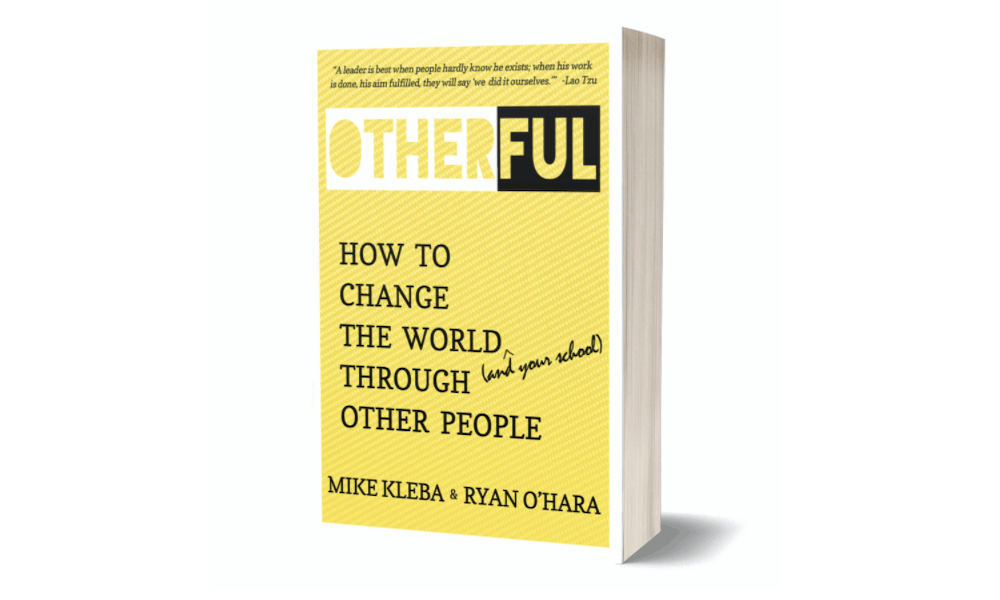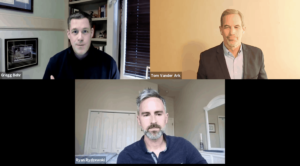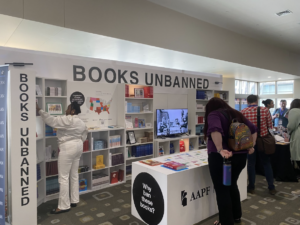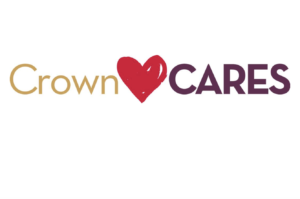Book Review: Otherful by Mike Kleba & Ryan O’Hara

Is our current collective situation a chance to leave behind any practice, style, or belief that doesn’t support teaching and learning — that doesn’t resonate with authenticity? It would seem so to Mike Kleba and Ryan O’Hara in Otherful: How to Change the World through Other People, their first book and offering to the education leadership bookshelf. Principals and superintendents have been working doggedly in the past weeks equipping their teachers to make sure a student’s basic needs are met before while not forsaking instruction and learning from afar. And while teachers collaborate with parents and try to protect instructional time, administrators are doing what they can to look ahead and adjust their approach with confidence and empathy.
The authors are practitioners themselves, writing from a place of generosity and kindness, in a voice that is friendly but truthful. Their honest and vulnerable sharing of their own mistakes along the way is extremely refreshing for a professional development title like Otherful.
Organized into three topical sections, the chapters of Otherful are essays that are thematically-aligned to each other but also self-contained, well-written, and satisfying. Administrators will find them to be sufficient reflections for their own development but easily expanded for leading their staff through a culture-building exercise. In a section entitled “Natural Accountability,” the authors share a memorable acronym to remind us that “everyone is on FIRE,” that we are all governed and thus driven by Fears, Inspiration, Responsibilities, and Experiences. In fact, confronting fear in our field is a consistent aim of the authors: “The ugly truth is that many people who work in schools live in fear, covering up mistakes or doing everything they can to avoid risk. Our job is to look perfect.” Though the stakes of our profession are intrinsically set high, Otherful reminds us to make sure we as school staff are exemplifying the authenticity and grace for each other that we already know we extend to our kids.
Each essay opens with relevant quotes, a sharp summary of the principle, suggestions for implementing it, and a courteous disclaimer for those moments that are a bit divergent from the typical prescriptive writing in this space.
There’s an interesting tone from Kleba and O’Hara. As former teachers, they make the “inside baseball” of education as a profession known to the reader. It’s a disarming way to approach some of the issues professional educators often endure and reframe it with positive realism.
Though Kleba and O’Hara’s book could sit comfortably on a business bookcase under leadership development, it’s acute in its focus. The authors are coaching education leaders with Otherful. They’re prioritizing empathy and social-emotional learning not just for students, but as what is required professionally in our school administrators. The collection of short essays is derived from the authors’ own experiences working in schools with a conviction that what’s missing in our leadership development for rising administrators is the value of influence over control.
The book ends with a wonderful finale of 22 quick fixes for creating an otherful-centric culture in your school across grade levels, roles, and topics. There’s even a limerick (most likely written on a dare between these two). These smaller principles are helpful and humane with such gems as “leading with love,” and calling out the arcane nature of the faculty meeting and teacher conventions — something all teachers can relate to.
However, one stood out in stark irony for this very moment in time: “Unnecessary urgency is one of the most dangerous drivers in leadership.” When the pandemic broke it was an impressive feat to watch the education system operationally turn on a dime. Given the risks, such a response by leadership was warranted. But I’m banking that there’s a new urgency worthy of the same response — that this new mutuality we’re all now experiencing, full of solidarity and empathetic vulnerability, will prove to be the “otherful” way of serving our teachers and their students. And for that, there is no time to wait.
For more, see:
- Getting Through: Leading Through And To A New Generation Of Learning Systems
- Podcast: Tom Rooney and Scott Rowe: Buildings are Closed, Learning Goes On!
- The New Mutuality
Stay in-the-know with innovations in learning by signing up for the weekly Smart Update.







0 Comments
Leave a Comment
Your email address will not be published. All fields are required.